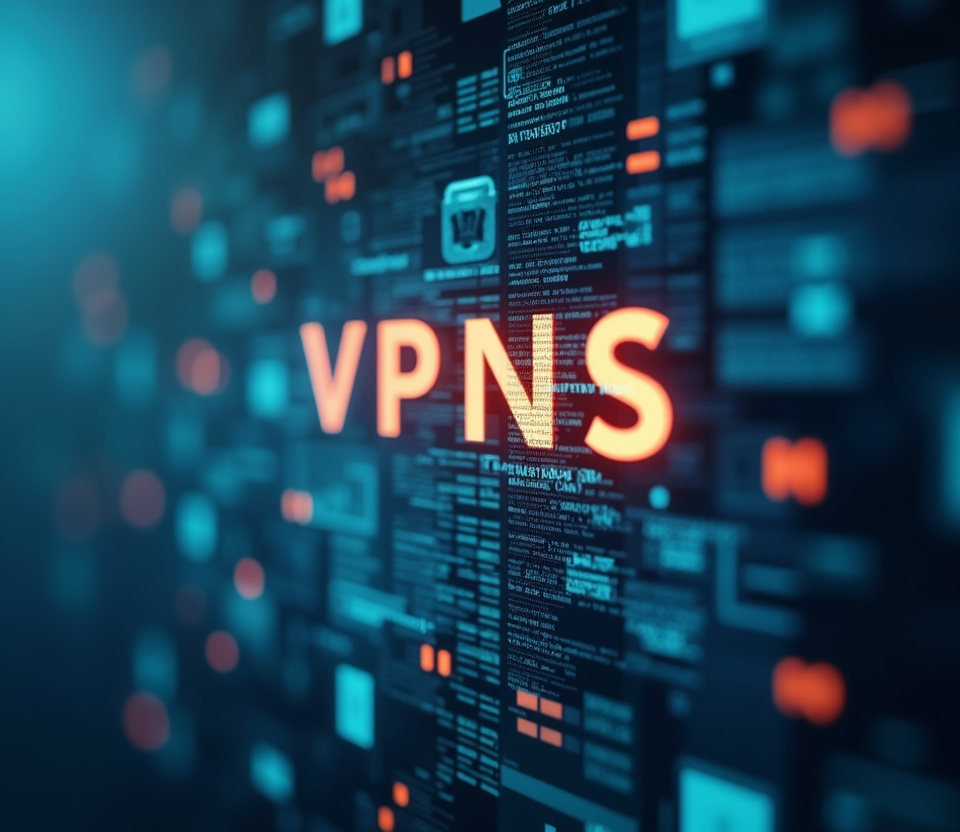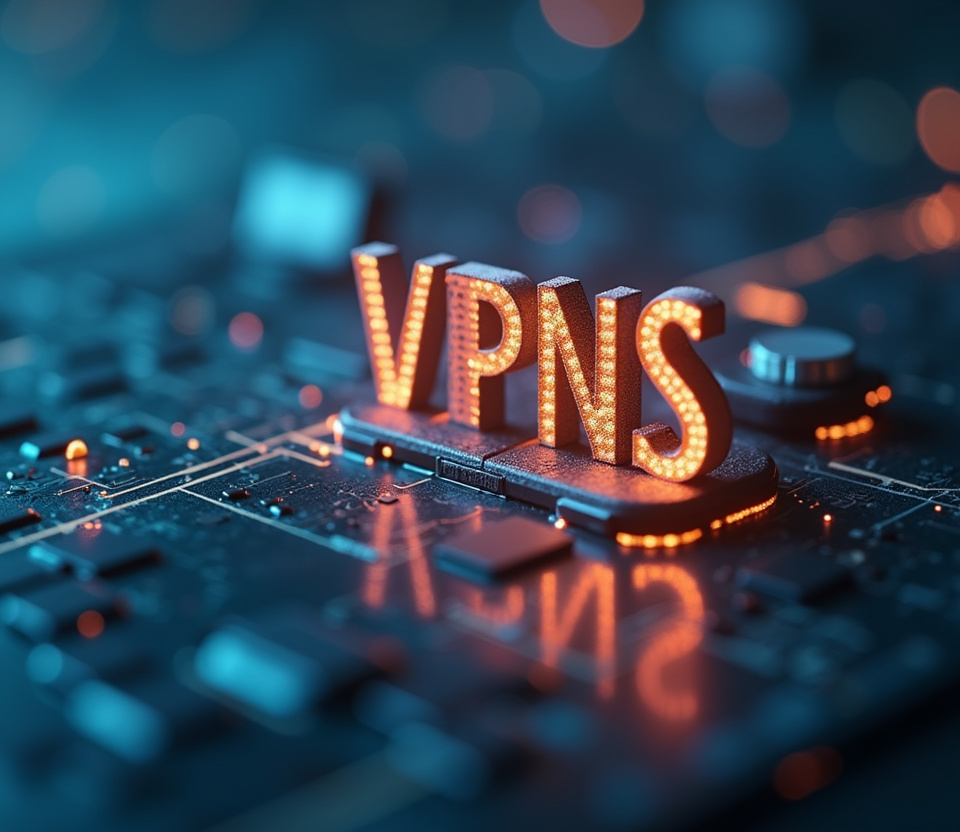VPNs for Disaster Relief Efforts: Protecting Volunteer Information

Table of Contents
Protecting volunteer information is paramount when disaster strikes and chaos ensues. The article "VPNs for Disaster Relief Efforts: Protecting Volunteer Information" explores the critical role of disaster relief VPNs in ensuring volunteer security and safeguarding sensitive information during humanitarian crises. In the aftermath of a natural disaster, rapid and efficient coordination is crucial.
Relief organizations rely heavily on the dedication of volunteers to provide essential aid to affected communities. However, the urgency of the situation can sometimes overshadow the need for robust data security measures. Volunteers often operate in challenging environments, using public Wi-Fi networks and unfamiliar devices to share vital information, making them vulnerable to cyber threats.
This article delves into how a dedicated disaster relief VPN can serve as a vital shield, encrypting data transmissions and protecting against unauthorized access, ensuring that volunteer efforts remain focused on helping those in need without the added risk of data breaches. The use of a disaster relief VPN is not just a matter of convenience; it's a fundamental requirement for maintaining the integrity of the relief operation and protecting the privacy of both volunteers and victims. The absence of adequate security measures can expose sensitive data to malicious actors, leading to identity theft, financial scams, and even physical harm.
Imagine a scenario where volunteers are collecting personal information from disaster victims, including their names, addresses, medical conditions, and insurance details. Without a secure VPN connection, this data could be intercepted by cybercriminals who could use it to exploit vulnerable individuals. This information could be used to commit fraud, target victims with personalized scams, or even sell their data on the dark web.
The consequences of such a breach can be devastating, eroding trust in relief organizations and hindering their ability to effectively provide assistance. A more proactive and secure technology like a disaster relief VPN is not simply a technical solution; it is a demonstration of responsibility by relief organizations. It demonstrates that they take seriously the protection of their personnel as well as the individuals they are accountable for.
Moreover, by implementing suitable strong measures, organizations can reduce the possibility of legal problems connected with data breaches and privacy violations. In addition to protecting sensitive data, a disaster relief VPN can also help to maintain the confidentiality of communications between volunteers and relief organizations. Volunteers often need to share sensitive information about disaster victims, resource needs, and logistical challenges.
A secure VPN connection ensures that these communications cannot be intercepted by unauthorized parties, protecting the privacy of those involved and preventing sensitive information from falling into the wrong hands. The importance of volunteer security cannot be overstated. Volunteers are the backbone of disaster relief efforts, dedicating their time and energy to helping those in need.
It is essential to provide them with the tools and resources they need to stay safe and secure while they are working in challenging environments. A disaster relief VPN can play a vital role in protecting their personal information and ensuring that they can communicate and share information securely. Employing encryption techniques, a disaster relief VPN effectively masks crucial data, including personal information, contact points, and geographical data.
This encryption is essential for volunteers, who regularly use open Wi-Fi networks to communicate, coordinate support and gain access to vital data. These networks are usually unsecured and prone to interception. Providing volunteers with a safe network connection keeps them secure, but it strengthens trust and teamwork among those.
In a crisis, where time is of the essence, volunteers require safe, effective communication routes in order to fulfill their duties efficiently. A disaster relief VPN isn't only a technological tool, it's a basic element with which to create confidence, safety, and efficiency during assistance attempts.
The selection and deployment of a disaster relief VPN solution requires careful consideration of specific needs and constraints. Not all VPNs are created equal, and it's crucial to choose one that is specifically designed for the demanding conditions often encountered in disaster relief environments. Key factors to consider include the VPN's security protocols, its speed and reliability, its ease of use, and its ability to scale to accommodate a large number of users.
Security protocols are the foundation of any VPN's security. Look for a VPN that uses strong encryption algorithms, such as AES-256, and supports secure protocols like OpenVPN or IKEv2/IPSec. These protocols provide robust protection against eavesdropping, data tampering, and other cyber threats.
Ensure that the VPN service adheres to a strict no-logs policy, meaning they don't track or store your online activity. This is crucial for maintaining privacy and preventing your data from being exposed even if the VPN server is compromised. In addition to strong encryption, a disaster relief VPN should also offer features like a kill switch, which automatically disconnects the internet connection if the VPN connection drops, preventing unencrypted data from being transmitted.
DNS leak protection is another important feature that prevents DNS requests from being sent to the user's ISP, which can reveal their location and browsing activity. Speed and reliability are also critical considerations. In a disaster relief scenario, volunteers need to be able to access and transmit information quickly and reliably.
A slow or unreliable VPN can hinder coordination efforts and delay the delivery of assistance. Look for a VPN that has a large network of servers located around the world, which can help to ensure fast and stable connections. It's also important to choose a VPN that is optimized for mobile devices, as many volunteers will be using smartphones and tablets to communicate and access information.
Evaluate the VPN's server infrastructure. A wide distribution of servers allows volunteers to connect to a server closer to their location, minimizing latency and improving connection speeds. Consider the VPN's bandwidth capacity to ensure it can handle the data demands of numerous volunteers simultaneously.
Ease of use is another important factor to consider, especially for volunteers who may not be technically savvy. A disaster relief VPN should be easy to install, configure, and use, with a clear and intuitive interface. It should also provide helpful documentation and support resources for volunteers who need assistance.
Deployment should be straightforward, with minimal configuration required. The user interface should be simple and intuitive, allowing volunteers to quickly connect to the VPN without technical expertise. The VPN should offer multi-platform compatibility, supporting a wide range of devices and operating systems used by volunteers.
Consider the VPN's customer support options. Look for a provider that offers responsive and helpful support through channels like email, live chat, or phone. The ability to scale is essential for accommodating a large number of users.
Disaster relief efforts often involve a surge of volunteers, and the VPN solution needs to be able to handle the increased demand without compromising performance or security. Look for a VPN that offers flexible licensing options and can be easily scaled up or down as needed. Check for VPN solutions that offer centralized management tools for easy deployment and management across a large volunteer network.
This allows for quick deployment, configuration updates, and monitoring of VPN usage. Before deploying a disaster relief VPN, it's important to conduct thorough testing to ensure that it meets the organization's specific needs and that it is compatible with the existing infrastructure. This testing should include security audits, performance testing, and usability testing.
It's also important to train volunteers on how to use the VPN and to provide them with ongoing support. A VPN for nonprofits can also benefit from features tailored to organizational needs, such as centralized management tools that allow administrators to monitor usage, enforce security policies, and troubleshoot problems remotely. The implementation of a disaster relief VPN is not a one-time event; it's an ongoing process that requires regular monitoring, maintenance, and updates.
By selecting and deploying a disaster relief VPN solution that meets these requirements, organizations can significantly enhance volunteer security and information protection, enabling them to respond more effectively to disasters and provide assistance to those in need. This strategic investment strengthens coordination support and solidifies the commitment to safeguarding sensitive data in vulnerable situations.
Effective coordination support during disaster relief efforts relies heavily on the ability to securely share information among volunteers and partner organizations. A disaster relief VPN facilitates this by creating a secure communication channel, ensuring that sensitive data is protected from unauthorized access. This secure channel supports seamless information flow, enhancing the overall efficiency and effectiveness of relief operations.
One of the key benefits of using a VPN for coordination support is the ability to establish secure remote access to critical resources. Volunteers often need to access databases, documents, and other information that are stored on servers located in different locations. A VPN allows them to securely connect to these resources from anywhere in the world, regardless of the network they are using.
This is particularly important in disaster relief scenarios, where volunteers may be working in remote areas with limited access to reliable internet connections. A disaster relief VPN also enables secure collaboration among volunteers and partner organizations. Relief efforts often involve multiple organizations working together, each with their own systems and protocols.
A VPN can help to bridge these gaps by providing a secure platform for sharing information and collaborating on projects. This can improve communication, reduce duplication of effort, and ultimately lead to better outcomes for disaster victims. Consider the scenario where several relief organizations are working together to provide medical assistance to disaster victims.
Each organization may have its own database of medical records, patient information, and resource availability. A disaster relief VPN can allow these organizations to securely share this information, enabling them to coordinate their efforts and provide the best possible care to those in need. The VPN ensures that sensitive medical information is protected from unauthorized access, while also allowing healthcare professionals to quickly and easily access the information they need to make critical decisions.
Furthermore, a VPN can facilitate secure communication between volunteers and headquarters. Volunteers in the field need to be able to communicate with their headquarters to report on conditions, request resources, and receive instructions. A VPN provides a secure channel for this communication, protecting sensitive information from being intercepted by malicious actors.
This is particularly important when volunteers are sharing information about disaster victims, security concerns, or logistical challenges. By establishing a secure communication channel, a disaster relief VPN empowers volunteers to communicate freely and confidently, knowing that their information is protected. This can improve morale, enhance coordination, and ultimately lead to a more effective relief effort.
Secure data transmission extends beyond simple communication, also including the dependable and safe transfers of files that are indispensable for powerful coordination. Maps, pictures, assessments, and logistical data should be shared immediately, but security is not compromised. A VPN guarantees the integrity and privacy of the deliveries, which makes it possible for organizations to take sound decisions and successfully allocate resources.
Likewise, the potential of a VPN in supporting real-time coordination is worthy of note also. Through setting up secured communication channels like video conferencing and instant messaging, volunteers, field teams, and headquarters can establish real contacts and coordinate endeavors despite the obstacles of distance and infrastructure destruction. Such real-time support is vital for adapting to quickly changing circumstances in which decision timing is critical when offering successful assistance whenever required.
Along with better collaboration, a VPN can assist in keeping an accurate and up-to-date inventory of the resources. The possibility for volunteers to access current data regarding supplies, devices, and individual skills enables an operation during relief to ensure an immediate response to needs. The result is less waste, easier procedures along, and greater delivery capability to individuals impacted by the catastrophe.
Thus, VPN fosters a strong basis to ensure a secure flow of information, better collaboration, and real-time coordination; these capacities are necessary to optimize support in catastrophe aid.
Beyond the immediate benefits of secure communication and coordination, a disaster relief VPN contributes significantly to long-term resilience and preparedness. By establishing a robust security infrastructure, relief organizations can better protect themselves against future cyber threats and improve their ability to respond to disasters effectively. This proactive approach not only safeguards sensitive data but also enhances the overall credibility and trustworthiness of the organization.
One of the key ways that a VPN enhances long-term resilience is by providing a secure platform for data backup and recovery. Disaster relief efforts often generate vast amounts of data, including victim information, resource inventories, and logistical records. It is essential to back up this data regularly to protect against loss or corruption.
A VPN allows organizations to securely transfer data to offsite backup locations, ensuring that it can be recovered quickly and easily in the event of a disaster. The use of a VPN also facilitates secure access to data archives, enabling organizations to analyze past relief efforts and identify areas for improvement. By studying past responses, organizations can learn valuable lessons about what works and what doesn't, allowing them to refine their strategies and improve their preparedness for future disasters.
A VPN ensures that these data archives are protected from unauthorized access, while also allowing authorized personnel to access the information they need to conduct their analysis. Furthermore, a disaster relief VPN can help organizations to comply with data retention policies. Many countries have laws that require organizations to retain certain types of data for a specific period of time.
A VPN can help organizations to securely store and manage this data, ensuring that they comply with all applicable regulations. This can help to avoid costly fines and penalties, while also protecting the privacy of individuals whose data is being retained. Consider the scenario where a relief organization is required to retain medical records of disaster victims for a period of ten years.
A disaster relief VPN can be used to securely transfer these records to a secure data archive, where they can be stored and managed in accordance with applicable regulations. The VPN ensures that the records are protected from unauthorized access, while also allowing authorized personnel to access them when needed for research or legal purposes. The implementation of a disaster relief VPN is not just a tactical response to an immediate threat; it's a strategic investment in long-term security and resilience.
By establishing a secure infrastructure for communication, coordination, and data management, organizations can better protect themselves against future cyber threats and improve their ability to respond to disasters effectively. A disaster relief VPN is part of a broader security strategy that focuses on risk assessment, incident response planning, and employee training. Organizations should regularly assess their IT systems for vulnerabilities and develop a comprehensive incident response plan to deal with cyber attacks.
Regular training for employees on topics such as password security, phishing emails, and data protection is critical to minimizing the risk of human error. The effectiveness of a disaster relief VPN is contingent upon its proper integration within the wider IT infrastructure as well as constant tracking, testing, and adjustment. To enhance its advantages, firms have to think holistically and incorporate it as part of their risk management strategy to safeguard the data of the company.
Lastly, by taking preventive interventions along with putting into procedure an efficient disaster relief VPN, businesses might reinforce long-term, better guarantee their activities as well as reinforce the stakeholders' reliance in their capability to supply help in the midst of adversity. By adopting all these steps, a VPN serves as a catalyst for making disaster aid more resilient in the long term while also reinforcing an organizational culture that is protective and secure and improving preparedness on a continuous basis.
In conclusion, the deployment of disaster relief VPNs represents a critical investment in volunteer security and information protection, offering a robust solution to the unique challenges faced during humanitarian crises. By creating secure channels for communication, facilitating seamless coordination, and enhancing long-term resilience, VPNs empower relief organizations to respond more effectively to disasters and provide assistance to those in need. The key to successful implementation lies in careful selection of a VPN solution that meets the specific needs of the organization, as well as ongoing monitoring, maintenance, and training.
This not only protects sensitive data but also fosters trust, enhances operational efficiency, and supports the overall mission of providing aid to affected communities. When selecting a disaster relief VPN, remember to prioritize robust security protocols, ensuring that your team's data is shielded with the strongest encryption available. Speed and reliability are equally vital; a seamless connection means quicker response times and more effective coordination in the field.
Ease of use is also a crucial factor, empowering every volunteer to connect securely without extensive technical knowledge. As we have explored, scalability is paramount to accommodate fluctuating team sizes during large-scale disasters. As technology changes, so too do cybersecurity threats; therefore, organizations should make it a priority to keep abreast of new trends in order to take adequate safety measures against digital criminal activities.
Organizations must incorporate the VPN into the comprehensive safety policies and ensure staff receive constant safety and security training on how to recognize and counter any dangers. Besides technology, people are key when it comes to cybersecurity; therefore, it is important to create an alert team, able to spot and deal with the issues immediately day and night. When disaster-relief groups utilize VPN connections, they demonstrate their commitment to both moral behavior and safety.
Protecting victims' sensitive information while aiding the affected persons and communities is crucial. Data breaches can result in reputational harm, legal ramifications, and erosion of trust in the group's goal, which can be avoided by implementing efficient volunteer safety strategies (including VPNs). Furthermore, investing in a disaster-relief VPN shows responsibility and transparency to financial contributors and partners.
In a world where data breaches are increasingly common, organizations that take proactive data protection steps are more likely to attract finances, construct more solid collaborations, and create more trust between the communities they serve. In the end, taking on disaster relief operations with a VPN ensures a strong plan which puts safety, effectiveness, and strength jointly. Not only does it safeguard important data and promotes coordinated efforts, but it also strengthens organizational values as well as promotes public faith within the disaster relief world.
VPNs support disaster-relief organizations' important assignment of promoting support at periods that are most difficult if groups take into
Stay Updated
Get the latest VPN news, tips, and exclusive deals to your inbox.




